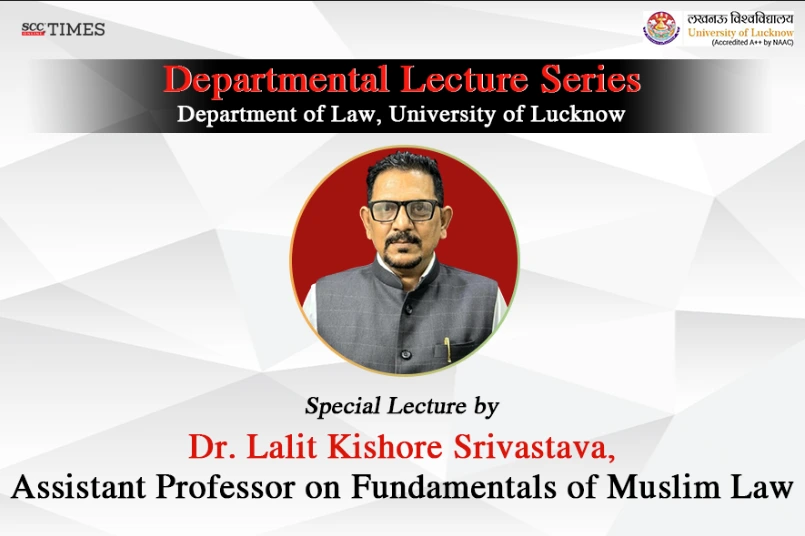In continuation of the Departmental Lecture Series, the Department of Law, University of Lucknow, organised a special lecture on the theme “Fundamentals of Muslim Law” on 23rd August 2025. The lecture was delivered by Dr. Lalit Kishore Srivastava, Assistant Professor at the Faculty of Law, University of Lucknow. Dr. Srivastava is an alumnus of the Faculty of Law itself and has also served as Guest Faculty at the Uttar Pradesh State Institute of Forensic Science, Lucknow.
The lecture aimed at providing students with a comprehensive understanding of the basic principles, sources, and practices under Muslim law, which forms an important branch of family and personal laws in India. Dr. Srivastava began by tracing the historical evolution of Muslim law in the Indian legal system and underlined its unique blend of religious injunctions and judicial interpretation. He emphasized the significance of primary sources such as the Quran, Hadith, Ijma, and Qiyas, which form the backbone of Muslim jurisprudence.
One of the central aspects of the lecture was the discussion on marriage (Nikah) as a civil contract under Muslim law, highlighting its conditions, essentials, and legal implications. Dr. Srivastava explained the concept of Mehr (dower), its rationale as a protective right for women, and its enforceability under law. He also provided detailed insights into the different forms of divorce, including Talaq, Khula, and Mubarat, examining their social and legal dimensions in light of judicial pronouncements and contemporary reforms.
The session further explored issues relating to guardianship, inheritance, and maintenance, emphasizing how the principles of equity and justice are embedded within Muslim personal law. Dr. Srivastava also touched upon the interplay between Muslim law and constitutional mandates, particularly in the context of gender justice and the right to equality.
The lecture was highly interactive, with students engaging in discussions on controversial issues such as the practice of triple talaq, uniform civil code debates, and the balancing of personal law with constitutional values. The session not only enriched the knowledge of participants but also encouraged them to critically evaluate the application of Muslim law in modern India.
The lecture concluded with a vote of thanks to Dr. Srivastava for his insightful and thought-provoking address. The session was a valuable addition to the Departmental Lecture Series, providing students with both doctrinal clarity and practical perspectives on Muslim law.


